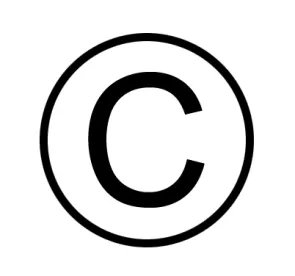Copyright owners cannot file infringement lawsuits until after the subject work has been granted registration by the U.S. Copyright Office. This unanimous decision from the Supreme Court today in Fourth Estate Pub. Benefit Corp. v. Wall-Street.com, 17-571 (U.S. Mar. 4, 2019) resolves a split among the various U.S. Courts of Appeals about the meaning of the Copyright Act’s requirement for “registration” prior to filing a civil copyright infringement lawsuit.
Section 411(a) of the Copyright Act states that “no civil action for infringement of the copyright in any United States work shall be instituted until . . . registration of the copyright claim has been made in accordance with this title” (emphasis added).1 Some circuits have interpreted this “registration” requirement to mean that an infringement claim cannot be made until after the Registrar of Copyrights has issued a registration; other circuits have held that the “registration” requirement simply means that the copyright owner must have first properly submitted its application for registration to the Copyright Office before initiating the infringement action.2
In the case under consideration at the Supreme Court, Fourth Estate Public Benefit Corporation (“Fourth Estate”) brought a copyright infringement lawsuit against news website Wall-Street.com, LLC (“Wall-Street”) after Wall-Street failed to remove news articles from its website which had been previously licensed to it by Fourth Estate after the parties’ contract had expired.3 In its infringement complaint, Fourth Estate claimed that it had filed applications to register these articles with the Copyright Office.4 However, because the Register of Copyrights had not yet acted on the applications, the District Court dismissed the complaint and the 11th Circuit affirmed.5
Under the Copyright Act of 1976, as amended, a copyright owner has “exclusive rights” in its “original works of authorship” immediately upon creation.6 However, a copyright owner must generally comply with the requirements of §411(a) before filing suit to enforce those rights. There are limited exceptions to the requirements in §411(a), which are provided for in the Copyright Act, wherein a copyright owner can pursue an infringement claim before registration, including in cases where a work is vulnerable to pre-distribution infringement (e.g., movies and music).7 In those cases, the owner can apply for “preregistration,” and then institute an infringement lawsuit. However, even in these limited circumstances, the copyright owner must eventually pursue registration in order to maintain its infringement lawsuit.8
In its plain reading of the Copyright Act, Justice Ruth Bader Ginsburg, delivering the Court’s opinion, noted that to read the “registration” requirement of §411(a) to mean “application alone” was sufficient would undermine other significant provisions of the Act.9 Justice Ginsburg further noted that the “registration” requirement of §411(a) does not limit a copyright owner’s ability to protect its work because the owner can eventually recover damages for past infringement as well as the infringer’s profits, that is, provided the owner has applied for and received a grant of registration from the Registrar of Copyrights before initiating the suit.10
Fourth Estate raised concerns that a copyright owner might lose the ability to enforce its rights if the Copyright Act’s three-year statute of limitations runs out before the Copyright Office acts on the application for registration. However, the Court found this argument to be unpersuasive, noting that the average processing time for copyright applications is seven months, which leaves, in the Court’s eyes, ample time to bring a lawsuit.11
Today’s ruling has a significant impact on copyright owners contemplating infringement lawsuits in jurisdictions where, up until now, the “registration” requirement was satisfied upon the filing of a copyright application. These plaintiffs may wish to seize on the Copyright Office’s “Special Handling” option which offers to expedite the processing of a copyright application in the event of pending or prospective litigation, with a turn-around time of approximately five working days.12 Fees for such expedited review start at $800.13
_______________________________________________________________________
1 17 U.S.C. §411(a)
2 Compare, e.g., Fourth Estate Pub. Benefit Corp. v. Wall-Street.com, LLC, 856 F.3d 1338, 1341 (11th Cir. 2017) (holding that registration has been made under §411(a) when the Register of Copyrights registers a copyright), with, e.g., Cosmetic Ideas, Inc. v. IAC/Interactivecorp., 606 F.3d 612, 621 (9th Cir. 2010) (holding that registration has been made under §411(a) when the copyright claimant’s “complete application” for registration is received by the Copyright Office)
3 See Fourth Estate Pub. Benefit Corp. v. Wall-Street.com, LLC, 856 F.3d 1338, 1339 (11th Cir. 2017)
4 Id.
5 Id. at 1342
6 17 U.S.C. §102(a); see also 17 U.S.C. §106; Eldred v. Ashcroft, 537 U. S. 186, 194 (2003) (“[F]ederal copyright protection . . . run[s] from the work’s creation.”)
7 17 U.S.C. §408(f)
8 Id.
9 Fourth Estate Pub. Benefit Corp. v. Wall-Street.com, 17-571 at *2 (U.S. Mar. 4, 2019)
10 17 U.S.C. §504
11 See U.S. Copyright Office, “Registration Processing Times and FAQs” (Oct. 2, 2018), https://www.copyright.gov/registration/docs/processing-times-faqs.pdf (as last visited March 4, 2019)
12 See U.S. Copyright Office, “Special Handling,” https://www.copyright.gov/help/faq/faq-special.html (as last visited March 4, 2019)
13 See U.S. Copyright Office, “Fees,” https://www.copyright.gov/about/fees.html (as last visited March 4, 2019)




 />i
/>i

